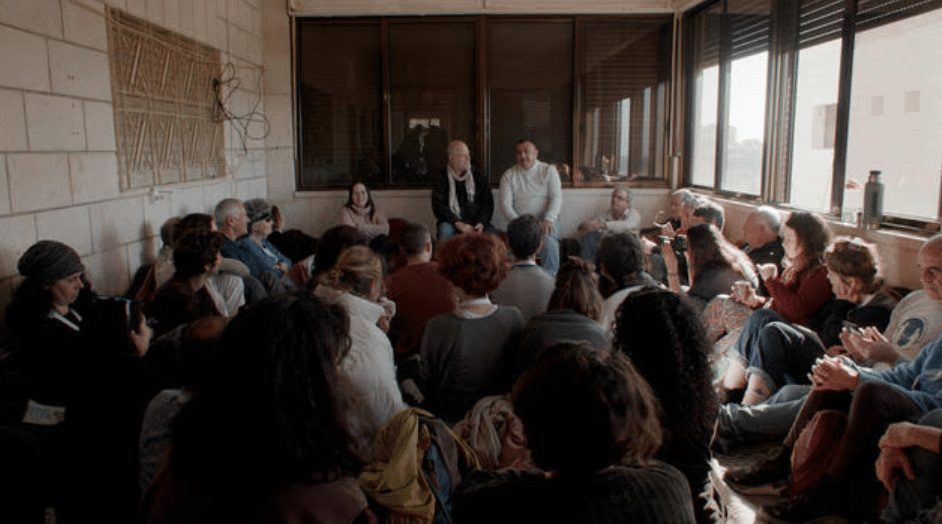On a sunny January day, dozens of Israelis and Palestinians crowded into a small house in a town outside Bethlehem, as their compatriots fought in the Gaza Strip, to talk about a subject that has become nearly taboo in their cities and towns:
How to build a lasting peace.
“This thing is not appropriate in the community we live in,” said Aya Sbeih, a Palestinian member of the group that was meeting in the Israeli-occupied West Bank, Combatants for Peace. “So I keep it a secret.”
Many peace groups have been struggling since Hamas’s Oct. 7 attack and Israel’s military campaign in Gaza, which have hardened the positions of many Israelis and Palestinians. But some activists, including those in Combatants for Peace, have quietly started to resume their work.
[The New York Times Report continues]
Chen Alon, a co-founder of Combatants for Peace, encountered that early one day when a neighbor stopped to ask, “Have you finally sobered up?” That is an expression that, since Oct. 7, some Israelis have been using to describe their abandonment of the political left.
Mr. Alon, a former Israeli military officer who refused to serve in 2002 over his objections to the Israeli occupation of Gaza and the West Bank, suggested they get coffee to talk it over. But questions have also come from within activists’ homes.
Jamil Qassas, the president of the Palestinian side of the organization, said a relative had recently challenged him about the group. “What’s the role of the organization right now?” he was asked. “Are the Israeli members participating in the war?”
Mr. Qassas led Palestinians in clashes with Israeli forces during the first intifada, but renounced violence after he began working in Israel and came to conclude that not all Israelis were enemies. He assured his relative that Combatants for Peace maintains its antiwar stance, and that nonviolence remains a basic principle, including for Israeli members.
“I know there are lots of people who don’t accept what I do,” he acknowledged.
Amid a pervasive atmosphere of distrust in which each side accuses the other of having no real interest in peace, the meetings at the group’s office in the town of Beit Jala offer refuge for new members and veteran volunteers alike.
[The New York Times Report continues]
“We would talk about the most difficult things,” Mr. Qassas said, “but at least we stayed together and kept going.”
Both activists, despite the resistance they face, cling to hope that when the conflict finally ends, “we will be the infrastructure, the community upon which our joint life will be built,” Mr. Alon said.
“If I have sobered up,” he said, “it’s in knowing that violence won’t solve anything.”

